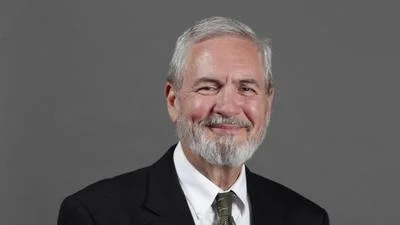Medline headquarters in Lake County, Illinois
Medline headquarters in Lake County, Illinois
Research by the Texas Commission on Environmental Quality (TCEQ) debunked findings from a recent study by a Chicago researcher suggesting that Waukegan residents in close proximity to Medline Industries have higher levels of the carcinogen ethylene oxide (EtO) in their blood.
The federally funded study completed by Susan Buchanan, a researcher at the University of Illinois at Chicago, was released last December and supported a 2016 report by the U.S. Environmental Protection Agency (USEPA) that claimed EtO was more dangerous than health officials realized. However, TCEQ disputes these findings.
“These ill-founded concerns about the carcinogenic risk posed by EtO do not stem from EtO’s carcinogenic potency, but rather USEPA’s scientifically flawed assessment of it,” TCEQ’s report stated.

Willowbrook medical-equipment sterilization facility Sterigenics has been subjected to closures and protests over its use of EtO.
Buchanan’s findings came a month after an Illinois Senate committee turned down a proposal that would have ordered Medline to shut down its operations in Waukegan and relocate to a less populated area. Additionally, the bill proposed that Vantage Specialty Chemicals in Gurnee be required to greatly reduce its emissions.
While Buchanan, who is director of the Great Lakes Center for Children’s Environmental Health at the UIC School of Public Health, is calling for the community to hold policymakers and companies accountable for endangering the public by allowing facilities to emit hazardous chemicals like EtO near highly-populated areas, TCEQ’s report presents data that contradicts her report.
“Highly-industrialized Jefferson County has more EtO Emissions on a square-mile basis than any other county in Texas with over 300 times more than the U.S. at large,” TCEQ wrote in its report. “The incidences of leukemia, Non-Hodgkins lymphoma, and breast cancer are lower in Jefferson County than in the general U.S. population.”
TCEQ stated that even though the EtO emissions in Jefferson County are 60 times higher than Texas and 307 times higher than the U.S., the incidence of breast cancer incidence is “statistically significantly lower” in Jefferson County compared to both Texas and the U.S. The report also states that USEPA’s results are faulty because the agency miscalculated the model selection criteria and therefore misrepresented it in the data.
Despite the inaccuracies, USEPA’s report is used to exaggerate the cancer risk associated with EtO, the report claims, and suggests that “urban background concentrations” around the country are unacceptably high, which causes a lot of panic. The report also noted that workers involved in a National Institute for Occupational Safety and Health (NIOSH) study were exposed to EtO concentrations of approximately 15,000 to 32 million times higher than the typical environment level cited by USEPA, and the results were telling.
“With such high exposures for more than 17,000 workers, if EtO were as potent of a carcinogenic as USEPA’s selected dose-response assessment suggests, then human data alone would be expected to sufficiently categorize EtO as carcinogenic to humans, but are not as even higher-dose animal study results must be included in the carcinogenic weight of evidence.”
TCEQ added that if USEPA’s findings were accurate, there would be a significant increase in the cases of lymphoid cancer in all of the workers exposed in the NOISH study.
Community activists are pushing for Gov. J.B. Pritzker to take action against Medline just like he did with Sterigenics, a sterilization facility in Willowbrook that also works with EtO.






 Alerts Sign-up
Alerts Sign-up